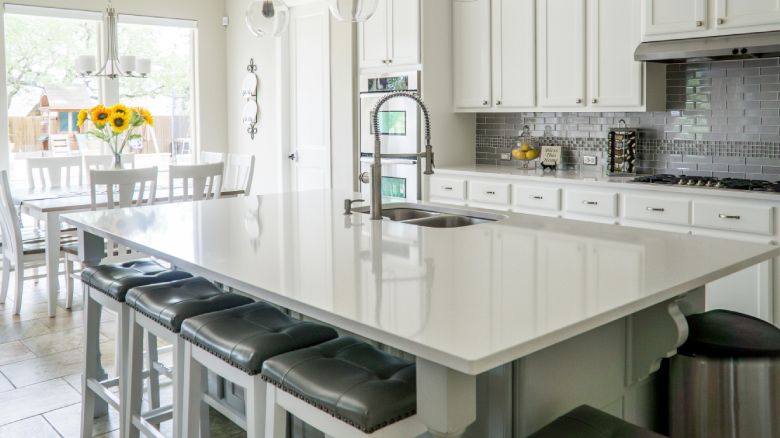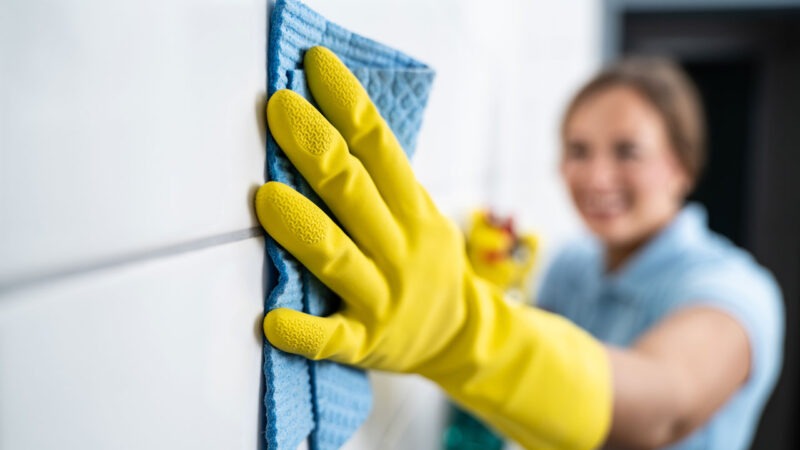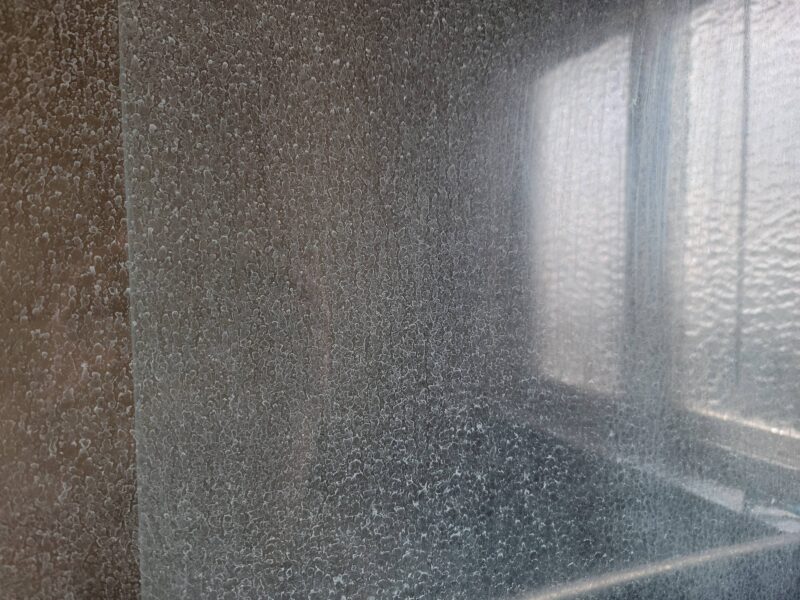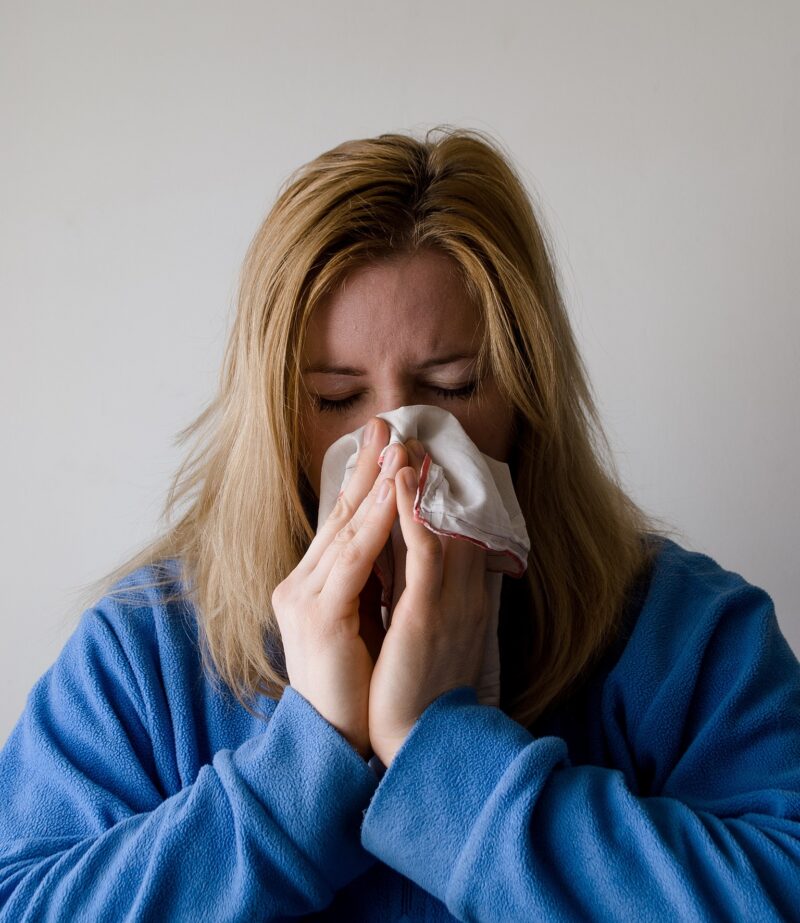How To Clean Stone Benchtops

Stone benchtops are a stunning addition to any kitchen, blending elegance with durability. However, maintaining their polished appearance can be challenging, especially when dealing with a stubborn stain on a stone benchtop. Whether it’s granite, marble or engineered stone, each type requires a specific approach to cleaning and maintenance.
If you’re unsure about how to clean stone benchtops effectively without causing damage, this guide is here to help. Below, we’ll explore the most effective methods to clean a stone benchtop in your kitchen.
Why you should clean your stone benchtop regularly
Stone benchtops are not just a functional part of your kitchen; they are a significant investment. Regular cleaning not only preserves their beauty but also extends their lifespan. Dirt, spills and abrasive materials can dull the surface of the stone over time. Addressing a spill or stain on a stone benchtop promptly is crucial to prevent permanent damage.
How to clean a stone benchtop in your kitchen
Without proper care, your stone benchtop can lose its lustre or become stained over time. Here are some key cleaning materials you’ll need and general tips on how to keep your stone benchtops clean.
Materials:
- Soft cloth or sponge
- Mild dish soap
- Warm water
- Isopropyl alcohol (for more stubborn stains)
- Microfibre towel
- Stone sealer (optional for natural stone surfaces)
Follow these simple yet effective tips to keep your stone benchtops looking their best:
- Daily cleaning routine — For everyday cleaning, mix a few drops of mild dish soap with warm water. Dampen a soft cloth or sponge in this solution and gently wipe the surface of the benchtop. This easy routine is the first step in knowing how to clean stone benchtops the right way.
- Addressing spills and stains — If you encounter a spill, especially acidic substances like wine or lemon juice, wipe it up immediately to prevent stains from occurring.
- Dealing with a stubborn stain on a stone benchtop — For a more stubborn stain on a stone benchtop, create a paste of baking soda and water. Apply it to the stain, cover it with plastic wrap and leave overnight. Gently wipe away the paste the next day and rinse with water.
- Disinfecting the surface — To disinfect, especially after handling raw meat or fish, use a solution of equal parts water and isopropyl alcohol. Spray it on the benchtop, leave it for a few minutes and then wipe it off with a clean cloth.
- Drying and buffing — After cleaning, always dry the surface with a microfibre towel to prevent water spots and streaks. This will also buff the surface slightly, restoring its shine.
- Sealing the stone (if applicable) — If you have natural stone benchtops made from granite or marble, consider applying a stone sealer annually. This will provide an additional layer of protection against stains and etching.
Maintenance tips for a clean stone benchtop
Depending on the material your kitchen benchtop is made from, it may require different cleaning methods. Here are tailored tips for caring for marble, granite and synthetic stone benchtops.
Marble benchtops
Marble is known for its stunning veining and softness compared to granite, making it more prone to scratching and staining.
Here are some tips to help you clean and maintain your marble benchtop:
- Acidic substances like wine, coffee and citrus can etch the marble. Wipe up spills immediately with a soft cloth.
- Always use coasters under glasses and trivets under hot dishes to prevent etching and heat damage.
- Use a pH-neutral cleaner or mild dish soap diluted in water. Avoid acidic or abrasive cleaners.
- Always use a soft, damp cloth for cleaning and drying marble surfaces.
Granite benchtops
Granite is a hard and durable natural stone, but it still requires proper care to maintain its shine and prevent damage.
Here are some tips to help you clean a stone benchtop made from granite:
- While granite is less porous than marble, it still needs to be sealed periodically to protect against stains.
- Harsh or acidic cleaners can damage the sealant and the stone. Stick to mild dish soap and water.
- Clean spills quickly, especially oils and acidic substances, to prevent staining.
- To prevent scratches and protect the finish, always use cutting boards when preparing meals.
- Wipe the surface with a soft, damp cloth and dry with a microfibre towel to avoid water spots.
Synthetic stone benchtops
Synthetic or engineered stone benchtops, like quartz, are a durable and non-porous alternative to natural stone.
Here are some tips to help you clean and maintain your synthetic stone benchtop:
- Use a soft cloth or sponge with mild dish soap and water for daily cleaning.
- Despite their durability, synthetic stones can be sensitive to high heat. Use trivets for hot pots and pans.
- Avoid using strong chemicals or solvents, as they can damage the surface.
- To prevent stains and buildup, regularly wipe down the surface, especially after meal preparation.
With these simple yet effective tips on how to clean stone benchtops, you can ensure they remain a stunning feature in your home. Remember, regular maintenance is key to preserving the beauty and functionality of your stone surfaces.
How to spot signs of damage on your stone benchtop
Stone benchtops, while resilient, can still suffer from wear and tear. It’s essential to recognise the signs of damage and understand when professional intervention is necessary.
If you observe signs of wear, such as cracks, chips, persistent stains or areas where the stone has become dull or etched, it’s important to take action. These issues often require more than just regular cleaning; they could indicate deeper problems that might worsen over time.
For cracks and chips, it’s essential to assess the extent of the damage. Small chips might be remedied with DIY repair kits, but larger cracks often require professional restoration. Stubborn stains that resist all cleaning methods can be a sign that the stain has penetrated deeply into the stone, especially if it’s a porous type like marble.
Similarly, if the surface has become dull or etched, particularly from exposure to acidic substances, it might need professional re-polishing. Regular sealing can prevent some of these issues, especially in natural stones like marble and granite, but once the damage has occurred, professional intervention is often the best course to restore the benchtop to its original state.
When dealing with such damages, it’s advisable to consult with a stone care specialist who can provide the appropriate treatment. They can offer solutions like filling and sealing cracks, removing deep stains or re-polishing the surface to bring back its original shine.
When to call the professionals for benchtop cleaning
Maintaining the elegance and durability of your stone benchtops is an ongoing task, and sometimes it requires a bit more than just your regular cleaning routine. Recognising when it’s time to call in the professionals is crucial, especially for those tougher situations like a stain on a stone benchtop that won’t go away.
Sometimes, your stone benchtops need a thorough, deep clean that goes beyond the surface grime, tackling the built-up bacteria and dirt that regular cleaning might miss. And, of course, if you ever feel unsure about the right products or methods for your stone benchtop, getting professional advice can save you a lot of time and prevent potential damage.
Contact Jim’s Cleaning for all your cleaning needs
At Jim’s Cleaning, we specialise in bringing the sparkle back to your stone benchtops. Our team of experts is well-versed in handling various types of stone surfaces in your home and office, ensuring your benchtops receive top-notch care and attention. Contact us for your home and office cleaning needs, and request a free quote to get started!



